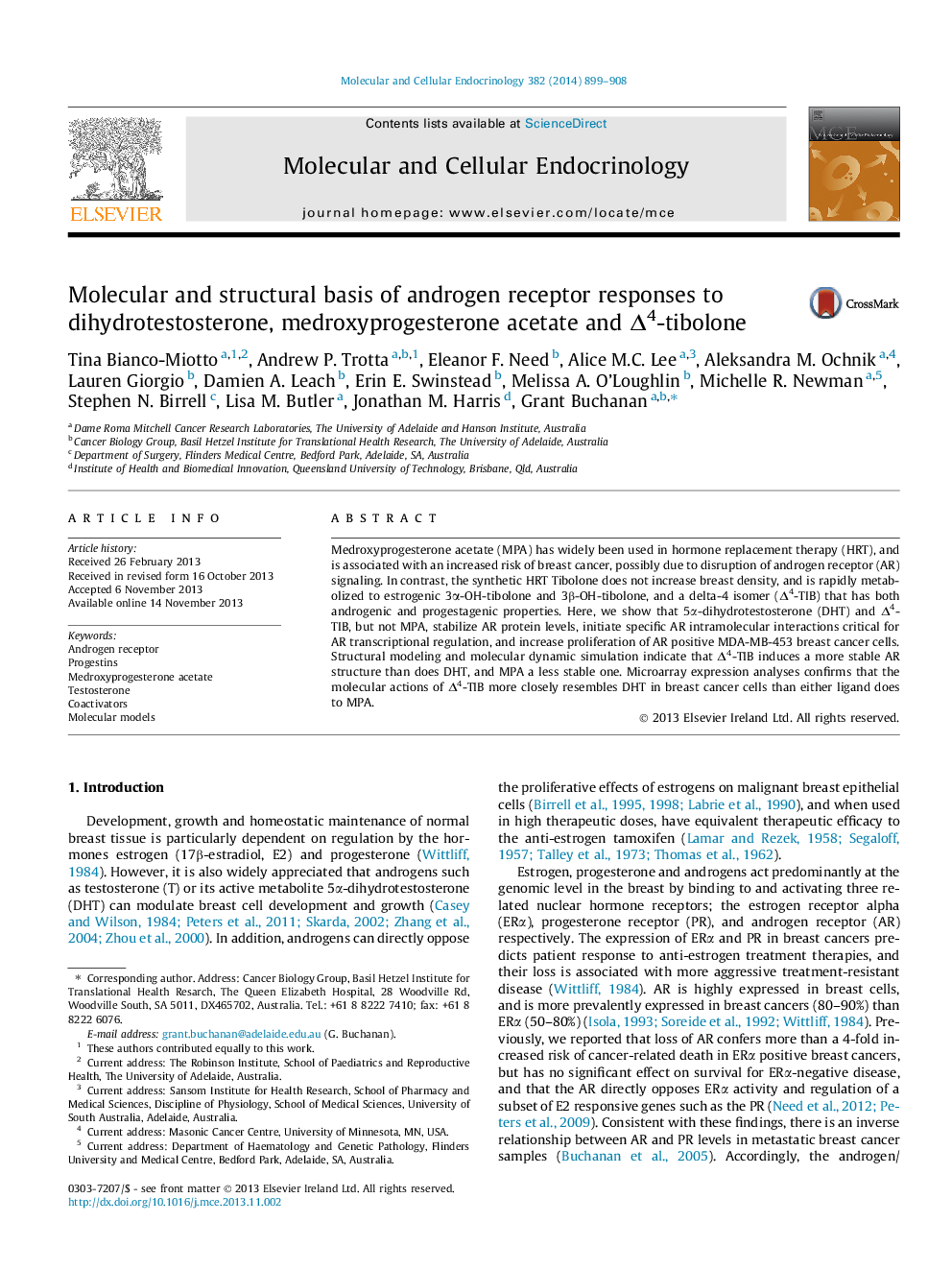| Article ID | Journal | Published Year | Pages | File Type |
|---|---|---|---|---|
| 10956193 | Molecular and Cellular Endocrinology | 2014 | 10 Pages |
Abstract
Medroxyprogesterone acetate (MPA) has widely been used in hormone replacement therapy (HRT), and is associated with an increased risk of breast cancer, possibly due to disruption of androgen receptor (AR) signaling. In contrast, the synthetic HRT Tibolone does not increase breast density, and is rapidly metabolized to estrogenic 3α-OH-tibolone and 3β-OH-tibolone, and a delta-4 isomer (Î4-TIB) that has both androgenic and progestagenic properties. Here, we show that 5α-dihydrotestosterone (DHT) and Î4-TIB, but not MPA, stabilize AR protein levels, initiate specific AR intramolecular interactions critical for AR transcriptional regulation, and increase proliferation of AR positive MDA-MB-453 breast cancer cells. Structural modeling and molecular dynamic simulation indicate that Î4-TIB induces a more stable AR structure than does DHT, and MPA a less stable one. Microarray expression analyses confirms that the molecular actions of Î4-TIB more closely resembles DHT in breast cancer cells than either ligand does to MPA.
Keywords
Related Topics
Life Sciences
Biochemistry, Genetics and Molecular Biology
Cell Biology
Authors
Tina Bianco-Miotto, Andrew P. Trotta, Eleanor F. Need, Alice M.C. Lee, Aleksandra M. Ochnik, Lauren Giorgio, Damien A. Leach, Erin E. Swinstead, Melissa A. O'Loughlin, Michelle R. Newman, Stephen N. Birrell, Lisa M. Butler, Jonathan M. Harris,
